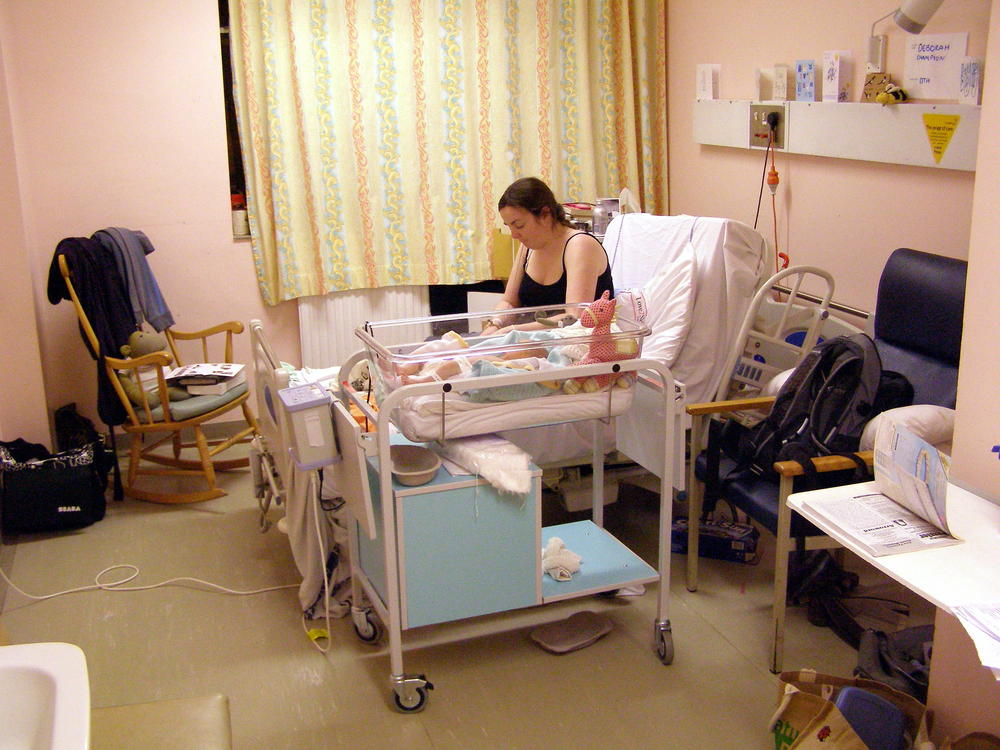Section Branding
Header Content
Political Rewind: What Is At The Root Of Georgia's High Maternal Mortality Rates?
Primary Content
Thursday on Political Rewind, rates of infant mortality in Georgia are a continuing concern. The issues facing some expecting mothers include lack of quality health care in rural areas, according to reporting out of The Atlanta Journal-Constitution.
Our panel broke down the story.
Gov. Brian Kemp told reporters at the capitol that the state is working with public health agencies, hospitals and other institutions to prepare for the possible spread of the coronavirus to Georgia.
There have been no reports of anyone with the virus here but concerns over the virus sent chills through Wall Street this week. What economic effects will Georgia face?
Panelists:
Jackie Cushman — Republican strategist, author
Howard Franklin — Democratic Strategist
Tamar Hallerman — Senior Reporter, The Atlanta Journal-Constitution
Kevin Riley — Editor, The Atlanta Journal-Constitution
Transcript Highlights:
This transcript has been edited for clarity and conciseness.
Timecode: [00:05:30]
Tamar Hallerman: The argument that you're hearing from folks who say you need to extend Medicaid is that there are certain conditions that aren't popping up until...way after the Medicaid window closes.
And there's certain things that, if not properly monitored by a doctor, if you don't have health care, you know, you could be at high risk to pass away six months or eight months or 10 months out.
Bill Nigut: We need to point out that the legislature has not been insensitive to this issue...Your article points out that a couple of sessions ago, they earmarked some two million dollars... for maternal mortality care in rural parts of the state.
Hallerman: And it's worth noting that overall we're talking about 100 deaths over the course of three years. When we're talking about people who die from the flu or who die in traffic accidents, it's a small number. But at the same time, it's incredibly disturbing because this is America in 2020. This is not 1850. You shouldn't die as a woman when you give birth.
And especially when you compare it to the statistics nationally, when you compare it to places like Greece, which, actually, is better than the U.S. in terms of maternal deaths prevented. The numbers are just really shocking.
Kevin Riley: So, a part of the challenge is that half of Georgia's counties don't have an OBGYN, and that plays into this. And I think part of the concern is that even if you have the money, you might not have the doctors, right?
Hallerman: So many of the factors that lead to this statistic… are interconnected. This very much has to do with Georgia's rural hospital crisis. It's really tough when you have to drive sometimes 30 to 45 minutes to seek emergency medical help. To get to your check-ins, you might have to cross multiple county lines.
Nigut: Jackie, weigh in on this. I know you said this is an issue that matters to you a great deal. Sharon Cooper has done yeoman's work trying to bring this to the attention of the General Assembly, the Republican legislator from Cobb County, and she's made some progress in the legislature on this.
But with budget problems they're facing right now, not as much as I think she'd like to.
Jackie Cushman: Right, and she has done a very good job. And I think this is really a bipartisan concern. You leave a child behind who no longer has their mother. I've had two children. So, I've been pregnant, I've gone through that. And if you don't have good health care during that...then you're more likely to have problems.
Nigut: So my understanding, Tamar, is that initially Sharon Cooper had asked that the legislature consider expanding Medicaid to allow for a full year of care for mothers who have given birth and that she's had to accept that maybe they'll get six months instead, again, because of the budget crunch out there. Have I got that right?
Hallerman: Yeah. Exactly. So, we're talking about the next upcoming budget year. The legislature so far has been consumed with this current budget year… The governor has his $2000 teacher pay raise he really wants. The speaker has his income tax cuts that he wants to do. And then you fit in, you know, extending Medicaid to new mothers, and that's pricey as well. And we've seen all sorts of different numbers, some of them up to 70 million for extending it for a whole year.
So, it's not exactly cheap, and it's all about kind of balancing that. And then there's the politics as well. You know, the governor said this issue's a priority for him. At the same time, he has been hesitant to extend Medicaid for everyone. And there's kind of the politics in that as well. You know, you don't want to be seen as supporting something that President Obama, you know, a big priority of his. So, there's politics involved as well.
Nigut: Kevin, well, you know, again, Jackie mentioned it. Tamar mentioned it. We're talking about 100 deaths in a three-year period. And we do acknowledge that there are other diseases. There are other causes of death that are much greater than that number. The thing that is beyond troubling about this is how Jackie made a great point: That's one hundred children who've lost a mother.
Riley: Or potentially more, actually.
Nigut: Right, of course.
Hallerman: Yeah, right.
Nigut: But here's the other thing. It's troubling that this breaks down on racial lines. That's the last thing in the world we want... to have the state stand for is that black mothers are dying at a greater rate than white mothers because of this.
I can't think of any more fundamental problem in terms of... the difference between blacks and whites and their state of living in a community than that.
Riley: Right. I mean, absolutely. In what kind of world do we think it's okay to not take care of mothers? I mean, it just doesn't add up. It's the result of, you know, kind of policy differences and political differences that are outside forces on this. But I think, as Jackie mentioned, I mean. Well, who doesn't agree that we shouldn't fix this problem? I think everyone agrees. You got to hope that it gets fixed. And I do give Sharon Cooper a lot of credit for continuing to push it.



